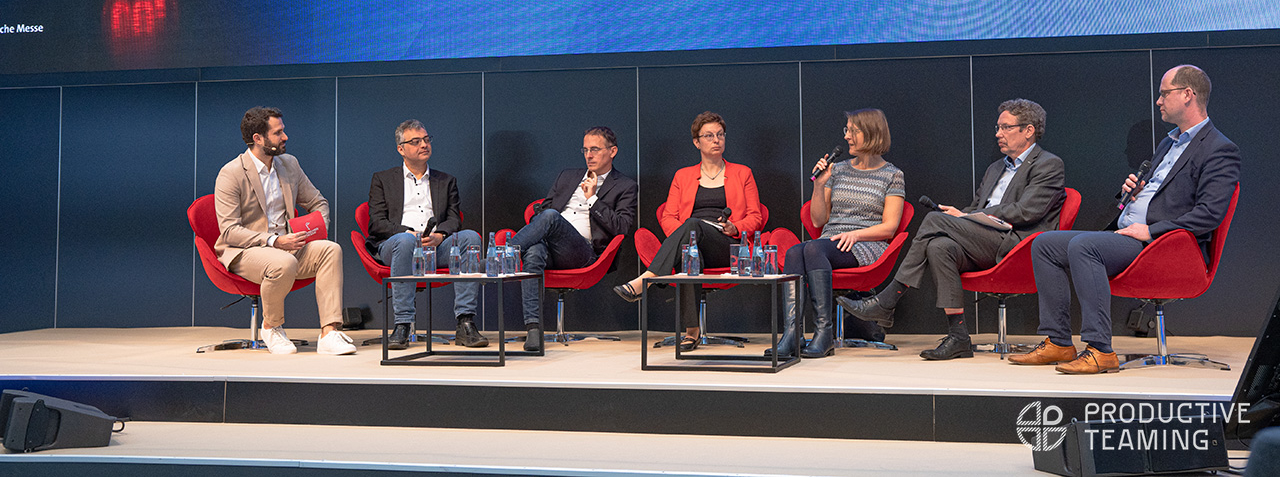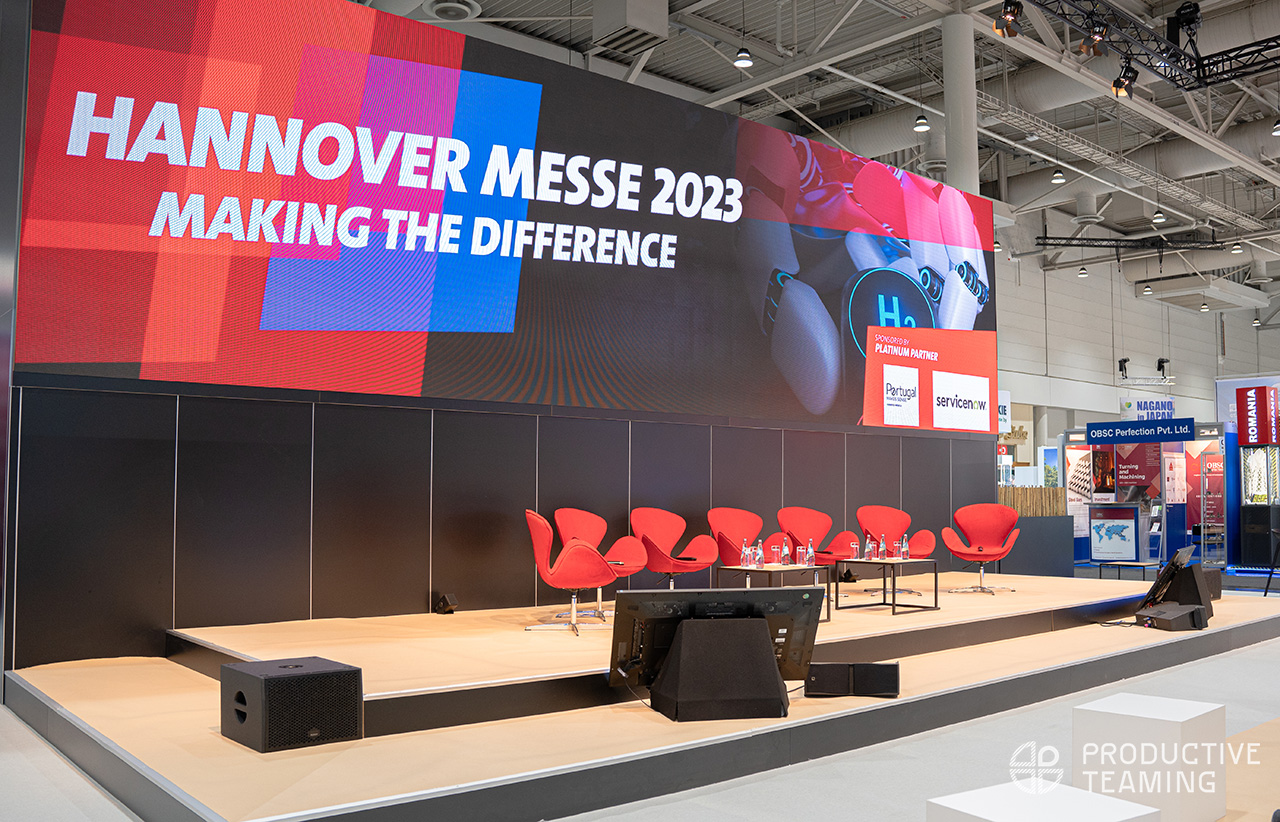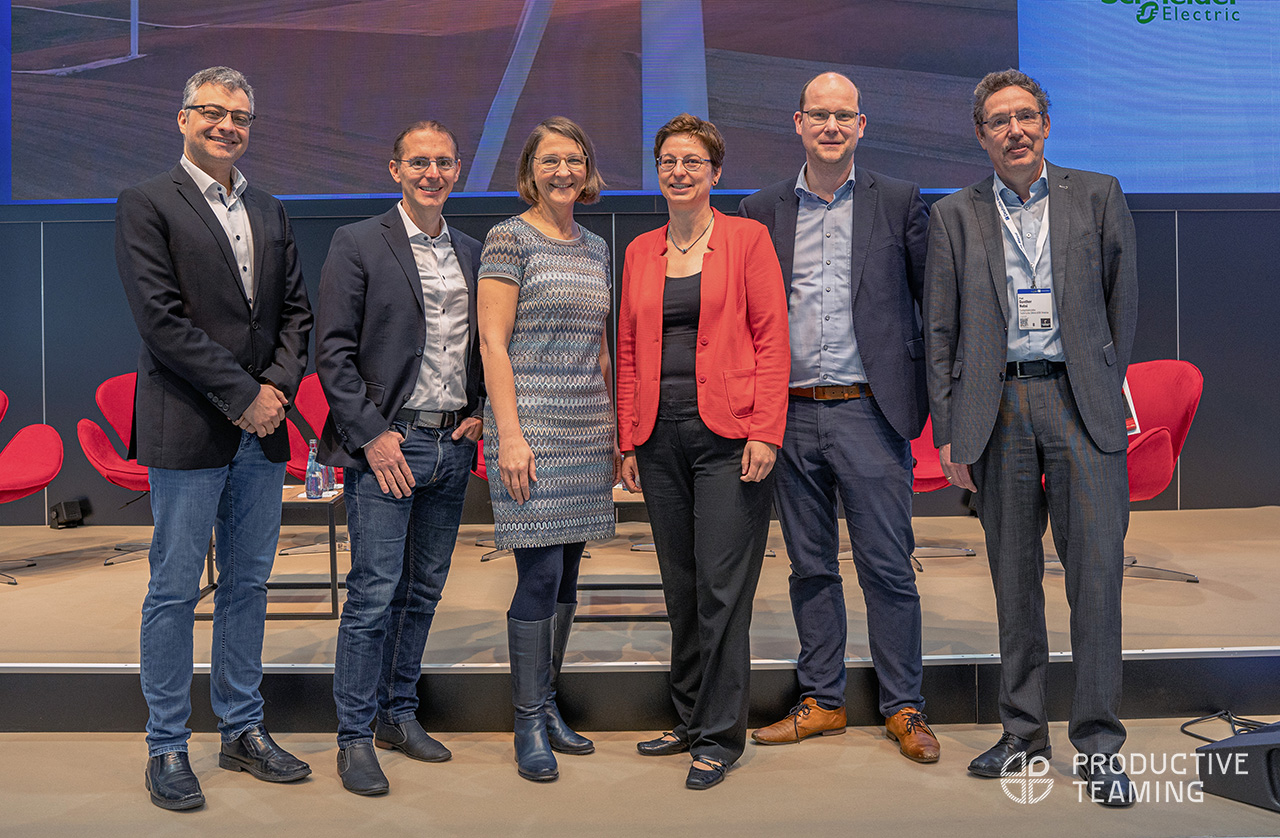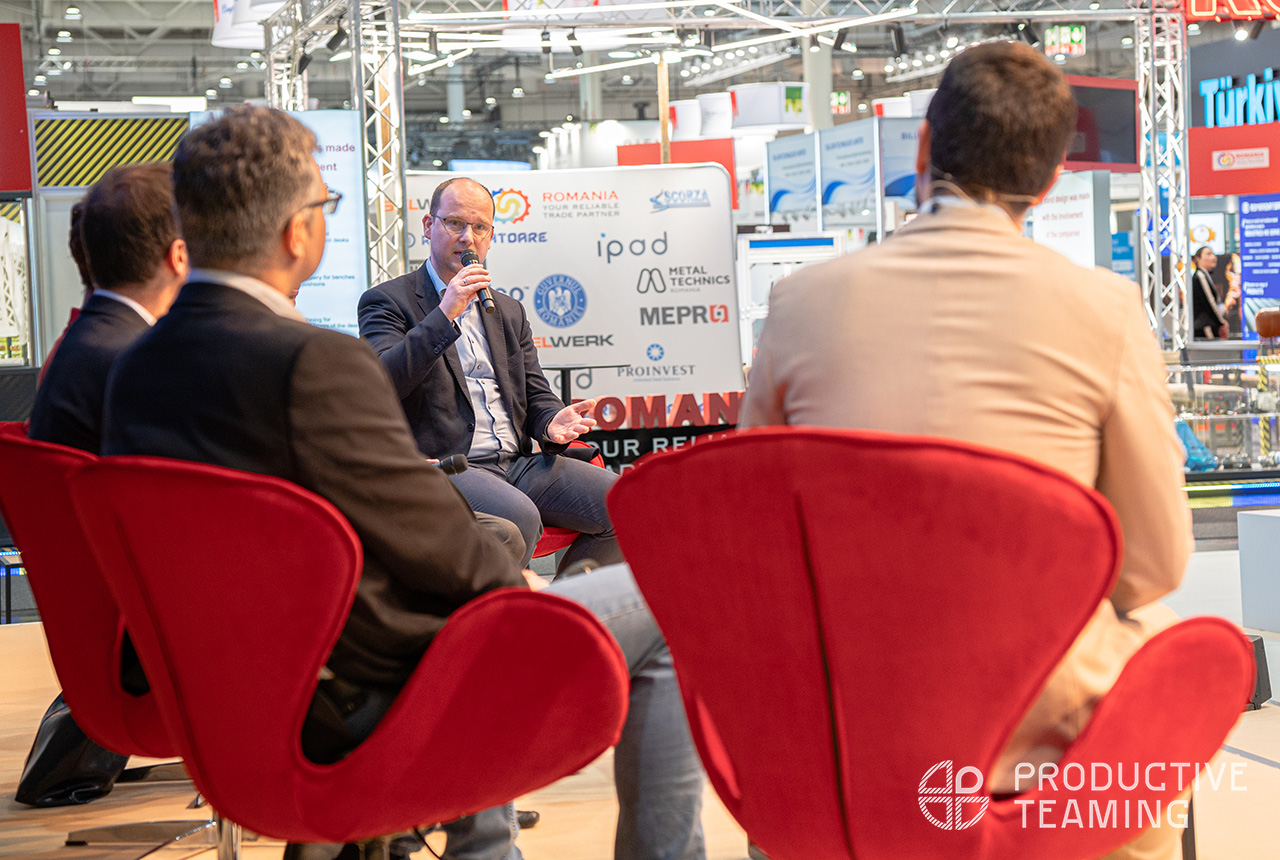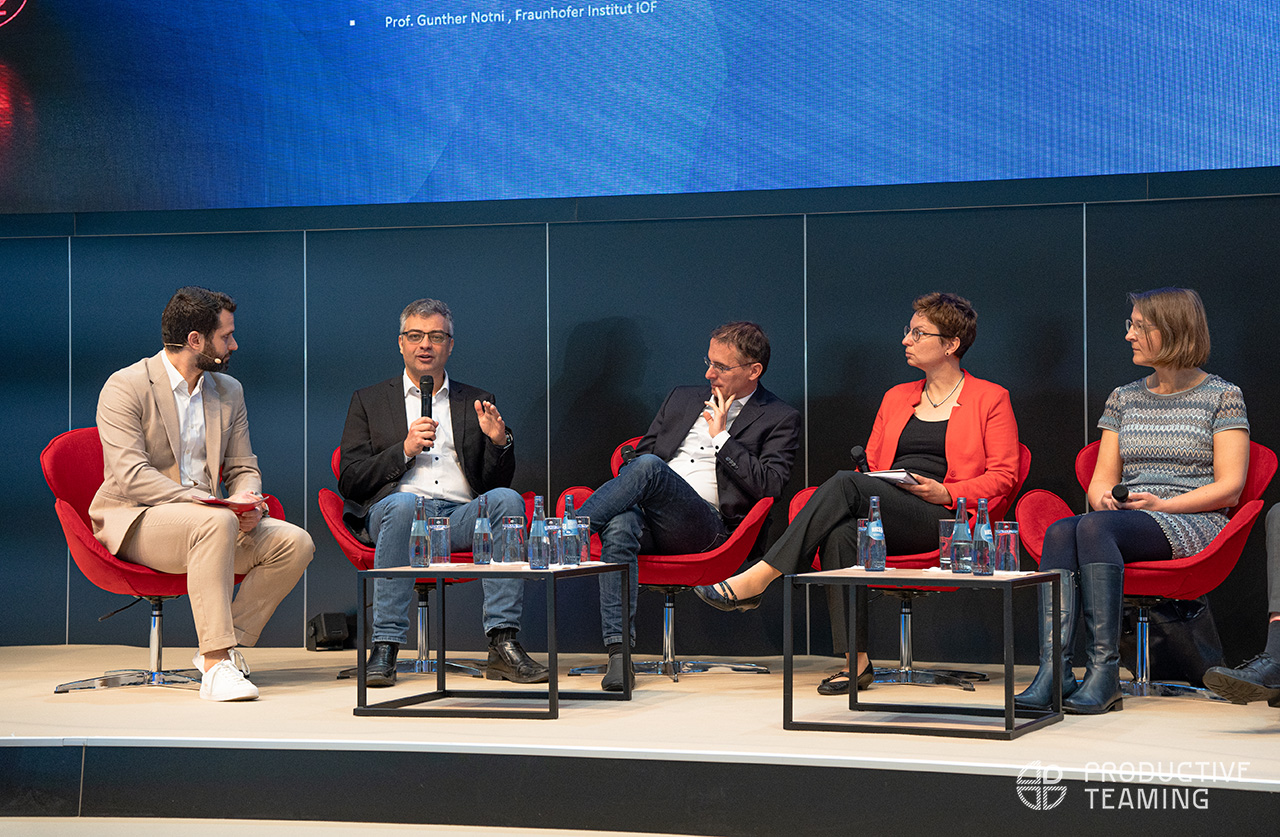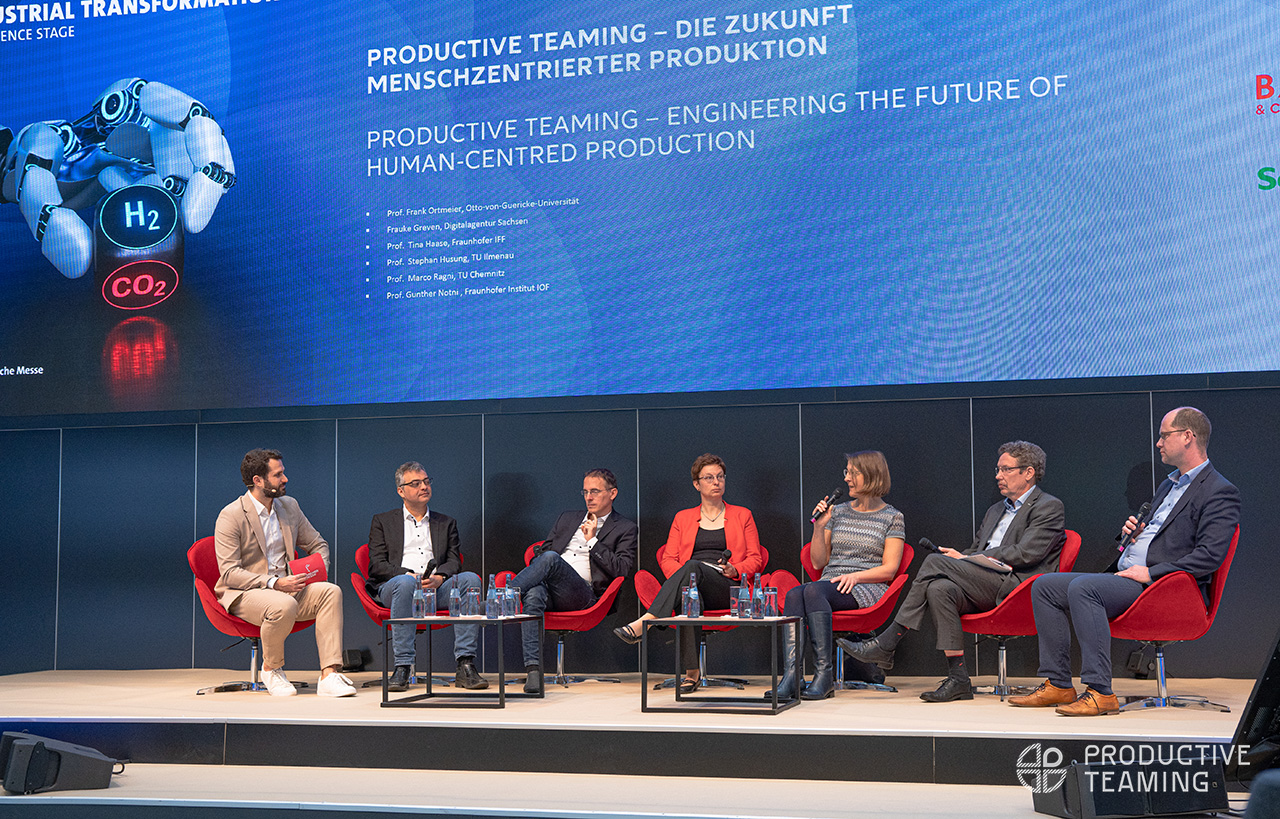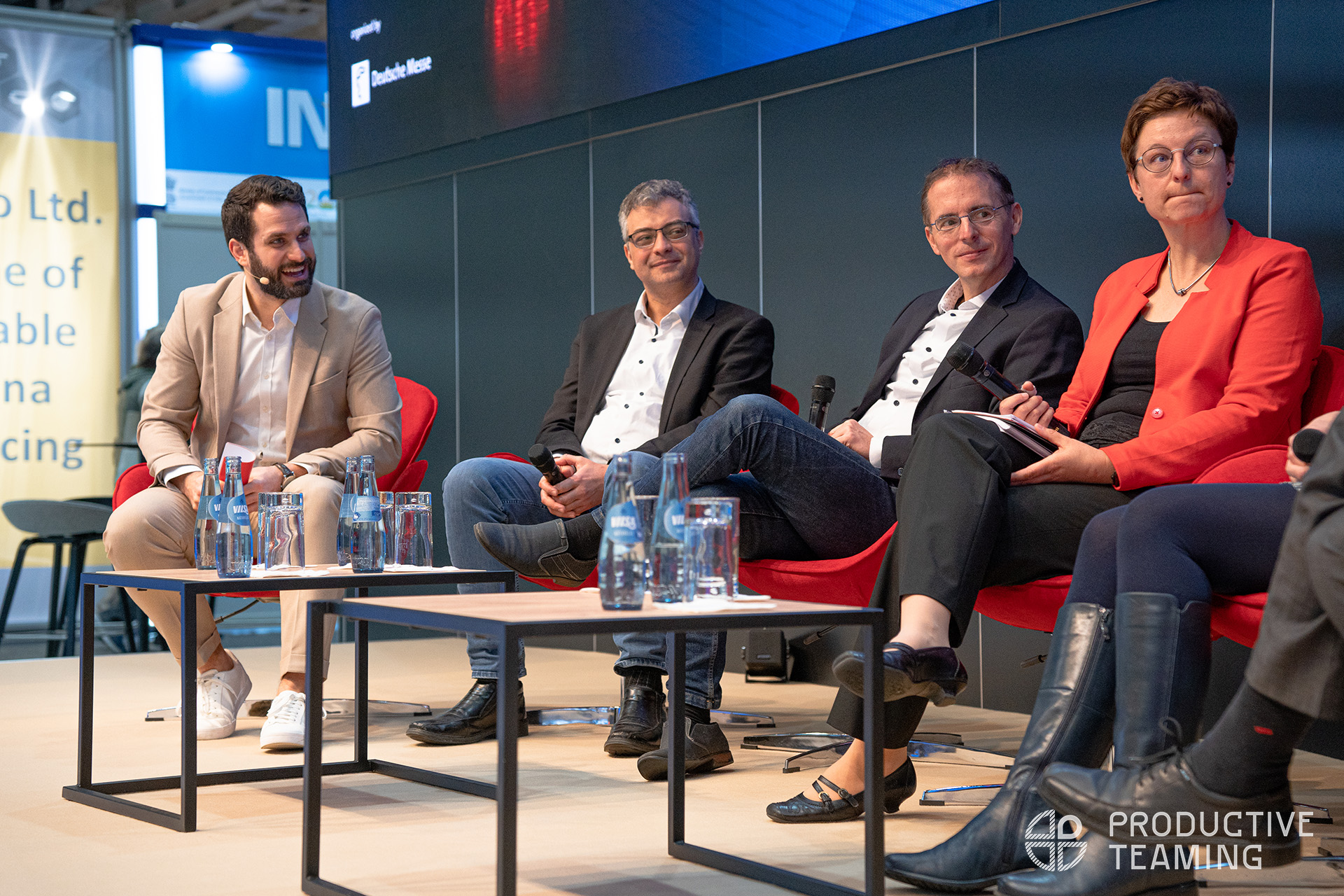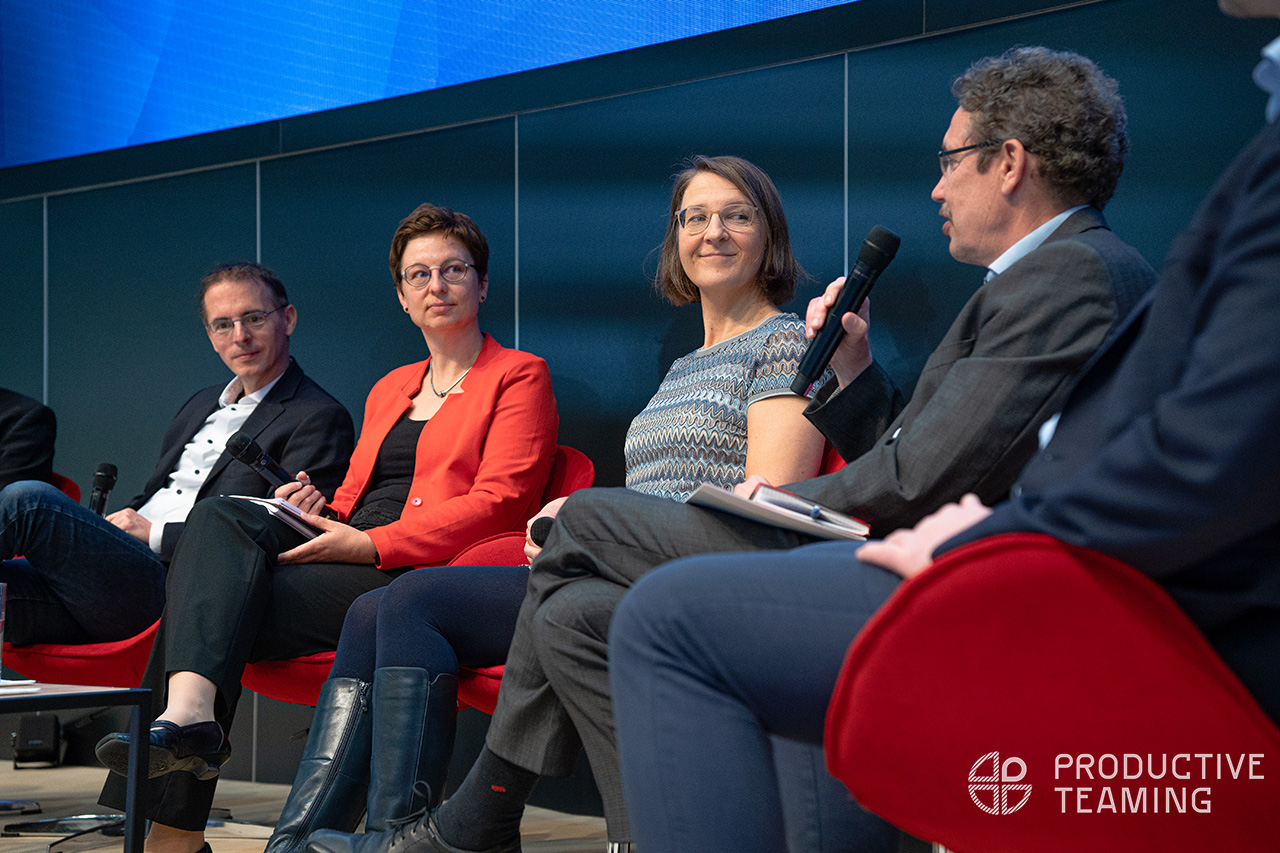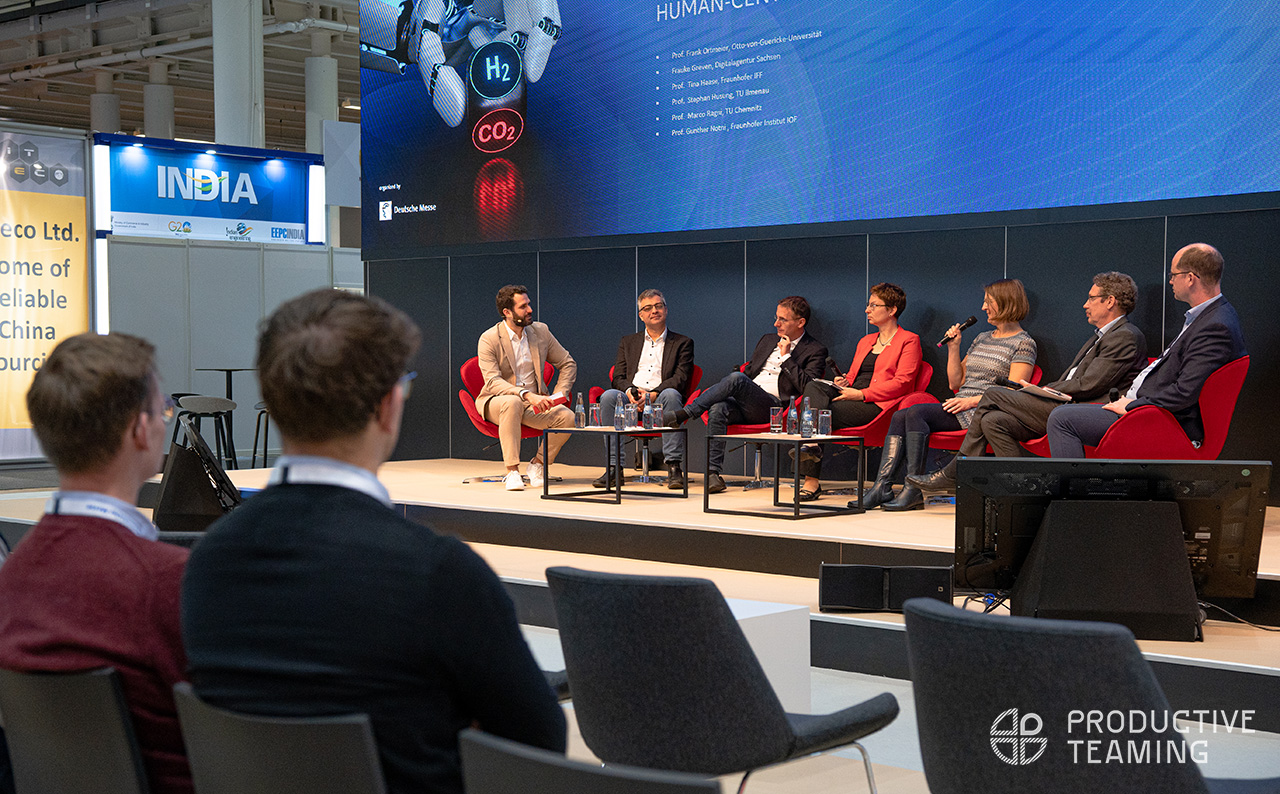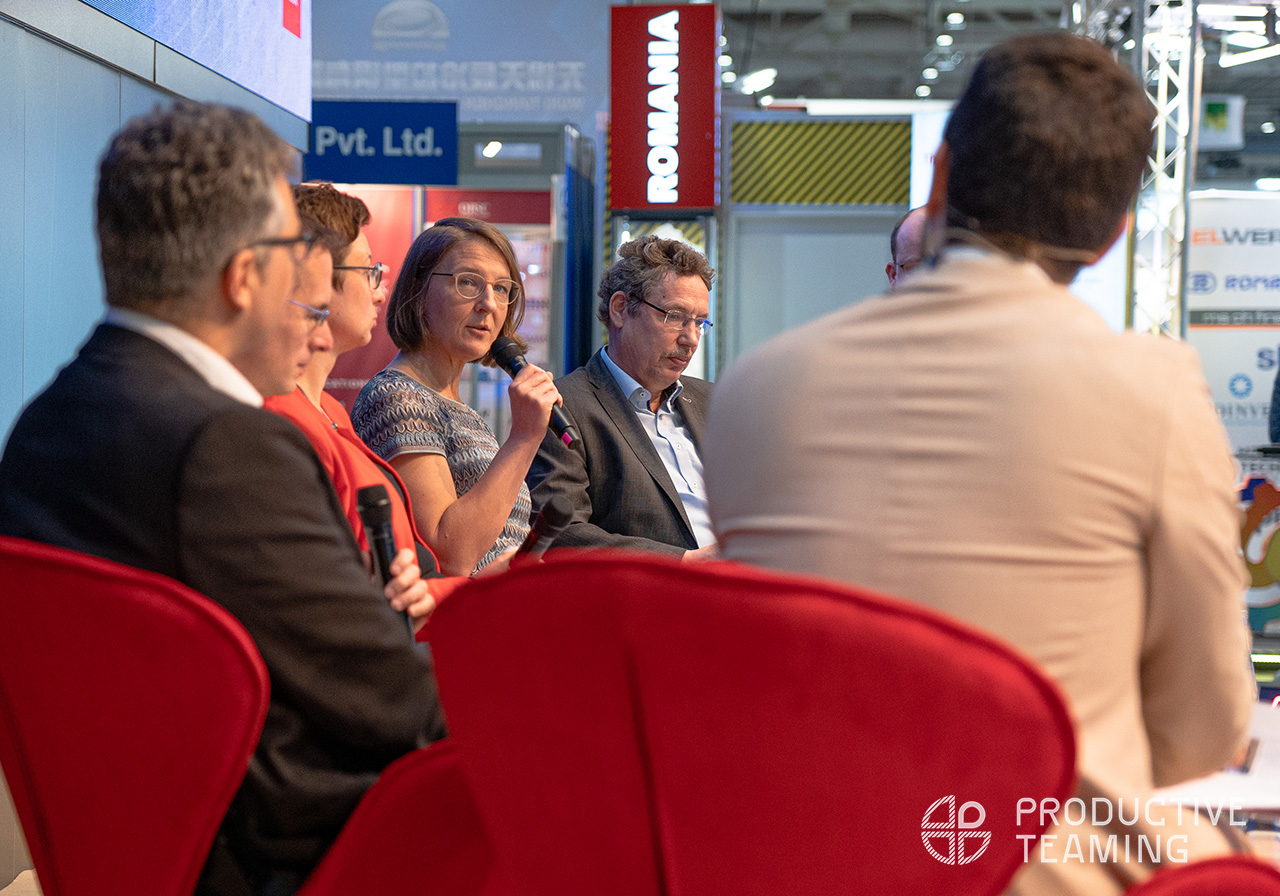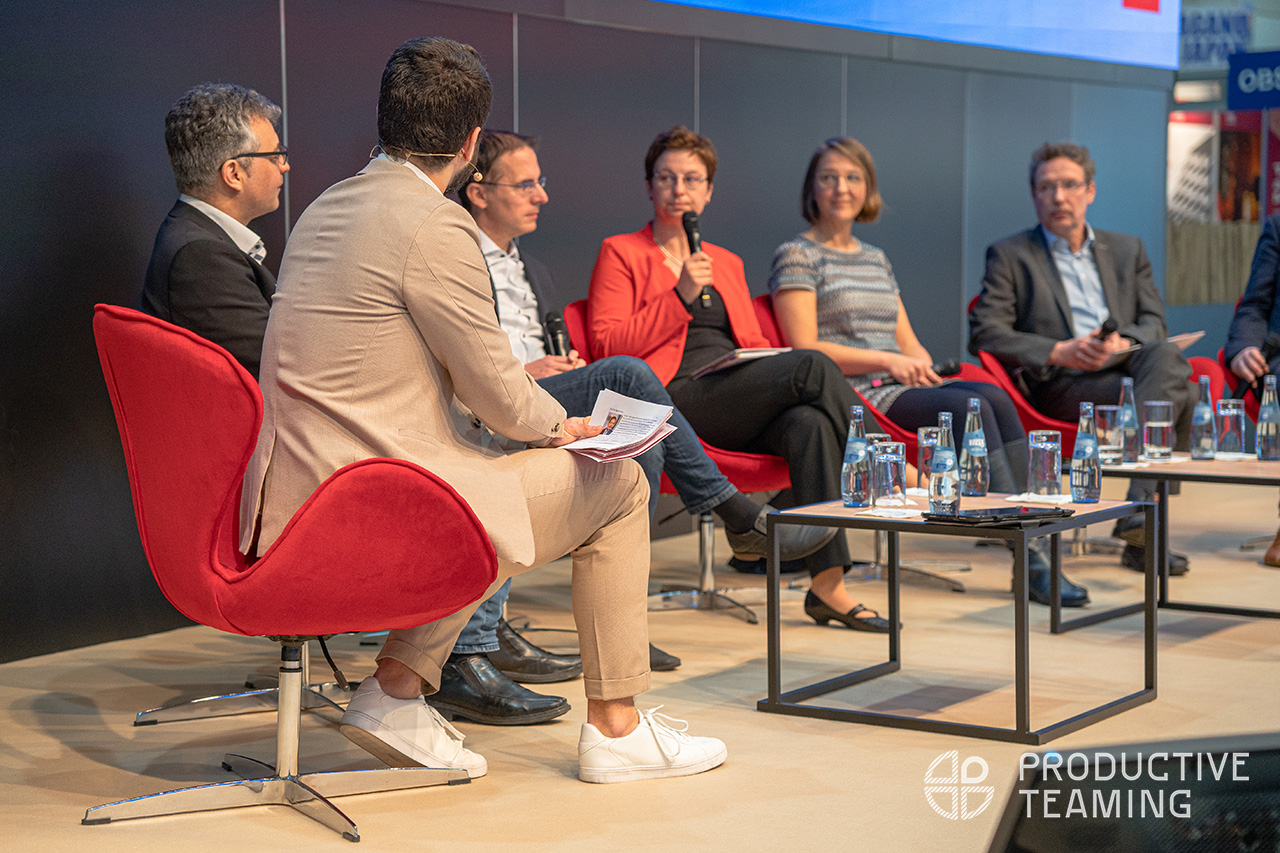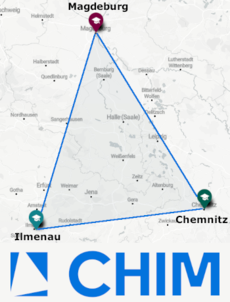Productive Teaming Panel @Hannovermesse 2023
Productive Teaming Panel at Hannover Messe 2023: Focus on human-centred production!
How can humans and machines work together as a team? Researchers from Chemnitz University of Technology, OVGU Magdeburg, Ilmenau University of Technology, the Fraunhofer IFF and the Digital Agency Saxony discussed these and other questions about "Productive Teaming" at Hannover Messe 2023 on 21 April.
This year's Hannover Messe took place from 17 to 21 April 2023 under the guiding theme of "Industrial Transformation - Making the Difference". The world's leading trade fair offered a wealth of opportunities to exchange ideas about the megatrends in industry. In addition to the classic trade fair stands, trade fair visitors and participants were able to inform themselves and discuss the current trends of smart, energy-efficient and sustainable production on several conference stages, including the "Industrial Transformation Stage", as part of panel discussions and lectures. A highlight on the last day of the fair was the panel on "Productive Teaming". The moderated discussion was led by scientists from the Chemnitz-Ilmenau-Magdeburg Research and Innovation Network ("CHIM") and other cooperating research partners, who presented their visions and ideas for the future of human-centred production.
Participants in the panel discussion included Frauke Greven from the Digital Agency Saxony, Prof. Dr. Tina Haase from the Fraunhofer IFF Magdeburg, Prof. Dr. Frank Ortmeier from Otto von Guericke University Magdeburg, Prof. Dr. Gunther Notni and Prof. Dr. Stephan Husung from the TU Ilmenau and Prof. Dr. Marco Ragni from the TU Chemnitz.
The panel focused on the question of how humans and machines can work together as a team and what we can imagine by "Productive Teaming". Right at the beginning of the panel, Prof. Ragni, as a CHIM speaker, commented on the general classification of Productive Teaming: "Due to the constantly increasing product diversification, we need more and more individual solutions in the area of production to be able to deal with these challenges. However, these problem solutions should no longer rest solely on the shoulders of humans; we should also try to involve the machines more and more". Of course, topics such as artificial intelligence play an important role in this. "Nevertheless, teaming does not only consist of machine and AI, [...] because we have to take a very broad approach, so an interdisciplinary approach has to be taken," says Prof. Notni. Based on the advances in AI and machine learning, systems are also becoming more and more capable. But can these systems also adapt to humans? What must systems be able to do so that they can work together with humans in a team?
"The human being is not to be replaced."
"Just as people "team" with each other and give each other assistance, machines should also be enabled to work together with humans on one level. The important thing here is that humans are also at the centre, i.e. in human-centred production, humans should not be replaced, but should work together with a machine in a team," said Ragni. Ortmeier added: "We see the vision and the future of human-centred production in the machine adapting to the human and becoming a partner of the human instead of setting the "pace" for the human".
The experts emphasised several times the need for smooth cooperation and communication, saying that the interaction between man and machine is crucial for successful production. The scientists from TU Ilmenau also spoke in favour of the interaction of man and machine: "We make machines understand man, but in the same way we as humans must also understand the machine. This interaction is the essential basis for teaming," said Notni.
Frauke Greven from Digitalagentur Sachsen stressed the importance of looking at the relationship between humans and machines with care and making sure that we ultimately focus on humans and also put them in charge: "If we don't also empower humans to understand the machine, then we'll hang people out to dry at some point in digitalisation."
"A central challenge is also that we or the machines not only recognise the environment, but also understand via multimodal sensors how my counterpart is doing, e.g. by recognising and measuring stress. This is also accompanied by ethical questions that must not be disregarded [...] and it requires a competent handling of the research results from such measurements," Prof. Haase pointed out.
Where can Productive Teaming be applied?
Prof. Husung from TU Ilmenau expressed in the interview that productive teaming is of great importance in production, especially where small quantities or individual products are worked with. "Likewise with many end products, such as in medical technology, where products are adapted to people and thus ad hoc decisions have to be made during production," Prof. Husung continues. The issue of sustainability also plays a major role here, he says, in that companies have to disassemble products again, for example, in order to return the materials to the cycle. "This is where the strengths of Productive Teaming, i.e. the competences of man and machine, could be played out to provide effective support," says Husung.
The topic is also relevant for medium-sized companies, as Productive Teaming technology can also bring great advantages for these companies. Prof. Ragni: "People depend on it, but if it also brings an advantage in that I have to think less [about problems] [...], then I have good reasons to use Productive Teaming. So once the technology catches on and the hardware can do it, it will become attractive to smaller companies."
The challenges in integrating artificial intelligence and machine learning in manufacturing remain significant. With Productive Teaming, the researchers on the panel offer a promising "tool" with the help of which humans and machines could work together as equals in the future and jointly develop solutions.
The entire recording of the panel can be accessed on the Hannover Messe website: https://www.hannovermesse.de/veranstaltung/productive-teaming-die-zukunft-menschzentrierter-produktion/exp/104567.
More information on the CHIM research and innovation network and Productive Teaming can be found here: https://chim.hrz.tu-chemnitz.de/
24.04.2023 (Author and photos: Marlies Facius)






